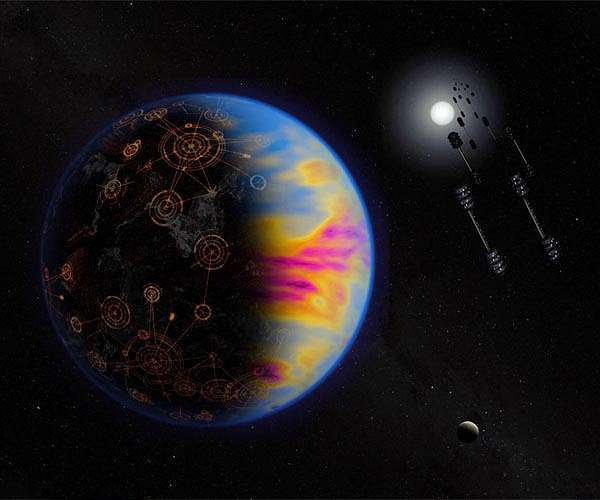14.04.2025

Are we alone in the cosmos? The search for extraterrestrial life has long captivated scientists, but a new theoretical approach suggests we might be looking in the wrong place. Mikhail Tikhonov, assistant professor of physics at Washington University in St. Louis, argues that instead of focusing solely on specific biological molecules, we should search for distinctive patterns of energy usage as indicators of life.
Tikhonov, who studies microbial ecosystems, explains that alien organisms may not exhibit familiar characteristics such as recognizable fossils or traditional biomarkers. "There could be life forms out there that defy our imagination," he said.
In a new study published in Nature Communications, Tikhonov and co-author Akshit Goyal of the International Centre for Theoretical Science in India present a bold proposal: examine the energy landscape of chemical compounds to uncover signs of life. The approach shifts focus from molecular composition to the organization of molecules by their energy content.
At the heart of their argument is a minimalist definition of life: the ability to consume energy and to replicate. Beyond that, the authors assert that living organisms almost never exist in isolation. Instead, they form competitive ecosystems vying for resources. These competitive dynamics should leave a telltale signature.
Unlike certain organic molecules that can also form through non-biological processes, energy consumption follows a consistent biological logic. Organisms tend to use high-energy compounds first, breaking them down into less energy-dense byproducts. This behavior results in a predictable energy gradient or stratification of resources, with substances arranged in layers from highest to lowest energy content.
"Life is incentivized to break down high-energy compounds first," said Tikhonov. This energy-ordered layering is not typically generated by non-living processes and could therefore serve as an agnostic signature of life, independent of chemical composition. If such stratification is found in Martian rocks or other planetary samples, it would be strong evidence of biological activity.
This theoretical framework encourages a more expansive view of life's potential forms. While some researchers argue that alien life may resemble Earth microbes due to convergent evolution, Tikhonov prefers to explore the unknown. "One could imagine a mile-long being floating in some distant atmosphere," he mused. "The possibilities are vast, which is why it's fun to think about."
Quelle: SD
